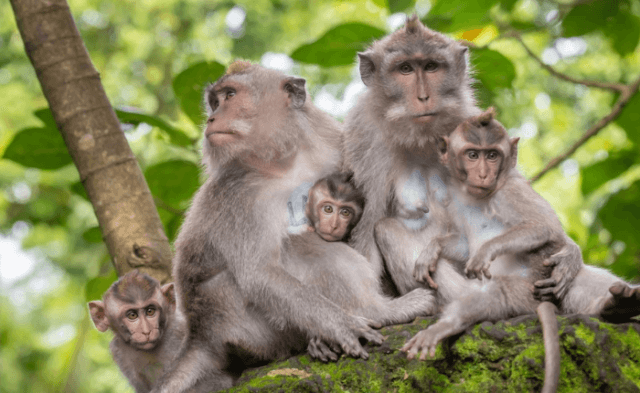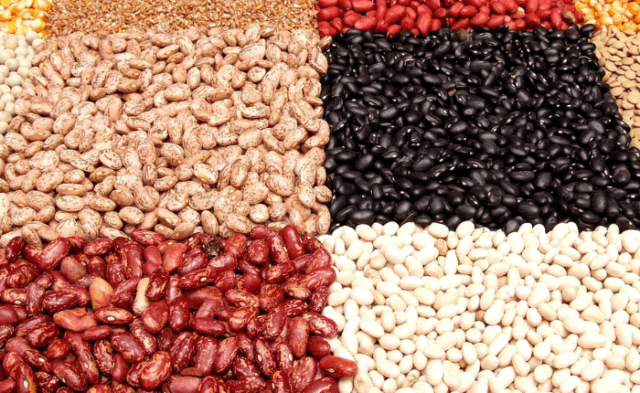A researcher at Loma Linda University in California wanted to find out if people who eat plant foods live longer than meat-eaters. So far, the answer seems to be a resounding “yes!”
While the research—which originally began in 1958 and included various studies on Seventh-day Adventists, who typically eat plant foods because of their religious beliefs—is only partially finished, the results suggest that, on average, vegetarian men and women live 9.5 and 6.1 years longer, respectively, than their meat-eating counterparts. (Many researchers use the term “vegetarian” when referring to vegans and vegetarians alike, something that was commonly done before the term “vegan” became as well known as it is today.)
The study also indicates that, in general, vegans are 30 pounds leaner—as well as five units lighter on the BMI scale—and less insulin resistant than meat-eaters.
While many Adventists also don’t drink, smoke, or consume caffeine, it’s obvious that their food choices play a significant role in their long lives—and in the quality of those lives. Countless other studies have shown that vegans tend to weigh less and are less likely to suffer from common chronic illnesses, including heart disease, diabetes, and cancer.
Think about it: Vegan foods are cholesterol-free, generally low in saturated fat, and high in fiber and complex carbohydrates. They contain cancer-fighting phytochemicals and all the essential nutrients that the human body needs.
Animal-based foods, on the other hand, are high in artery-clogging cholesterol, saturated fat, and calories. They don’t contain fiber or various vitamins and have been linked to at least nine diseases. The hormones, toxins, and antibiotics found in animal-based foods are also linked to a variety of health problems.
So of course, vegans have a better chance of living longer. They have fewer health problems and, on average, have the most antioxidants and other biomarkers in their bodies. A study of more than 70,000 Japanese adults found that people who ate the most plant protein had a 13% lower all-cause mortality rate than those who ate the least.
In addition, those who choose to eat healthy, humane vegan foods save more than 200 animals every year, so it’s a win-win situation for all. In addition to living longer, vegans tend to lead kinder and more fulfilling lives, helping to make the world a better place for everyone.
Order Your FREE Vegan Starter Kit!
Although the research—which originally began in 1958 and includes various studies on Seventh-day Adventists, who typically eat a plant-based diet as part of their religious beliefs—is only halfway finished, the results suggest that, on average, vegetarian men and women live 9.5 and 6.1 years longer, respectively, than their meat-eating counterparts.
The study also indicates that, in general, vegans are 30 pounds leaner—and five units lighter in terms of body mass index—and that vegetarians and vegans are less insulin resistant than meat-eaters.
Although many Seventh-day Adventists don’t drink, smoke, or consume caffeine, it’s obvious from the initial results that their food choices also play a role in their life expectancy—and their quality of life. Many other scientific studies have shown that vegans are less likely to suffer from chronic illnesses, so it shouldn’t come as any surprise that vegans tend to live longer. A 2012 Harvard School of Public Health study, [http://www.livescience.com/18996-red-meat-premature-death.html] for example, found that people who eat red and processed meats are much more likely to die from heart disease, diabetes, or cancer. Study participants who ate nuts or other plant-based foods instead of meat had a significantly lower risk of dying young.
Think about it: Vegan foods are cholesterol-free, generally low in saturated fat, and high in fiber, complex carbohydrates, and other essential nutrients. They’re often packed with protein [http://www.peta.org/issues/Animals-Used-For-Food/essential-nutrients.aspx] and cancer-fighting phytochemicals, [http://www.phytochemicals.info/] and vegans can easily obtain all the vitamins (including vitamins B12 and D) [http://www.peta.org/issues/Animals-Used-For-Food/essential-nutrients.aspx] and minerals (including calcium and iron) [http://www.peta.org/issues/Animals-Used-For-Food/essential-nutrients.aspx] that they need.
Meat, eggs, and dairy products, on the other hand, are high in artery-clogging cholesterol, saturated fat, and calories. They don’t contain fiber or various vitamins, and the hormones, toxins, and antibiotics [http://www.peta.org/issues/Animals-Used-For-Food/Other-Health-Risks-of-the-Meat-Industry.aspx] that are often found in animal-based food have been linked to a litany of health problems.
Who do you think will have a better chance of living longer?
The vegans, of course! And the more people there are who eat vegan foods, the fewer animals there will be who are raised in filthy, crowded factory farms [http://www.peta.org/issues/animals-used-for-food/factory-farming.aspx] and killed in terrifying, blood-soaked slaughterhouses. [http://www.peta.org/issues/animals-used-for-food/factory-farming.aspx] It’s a win-win situation.





